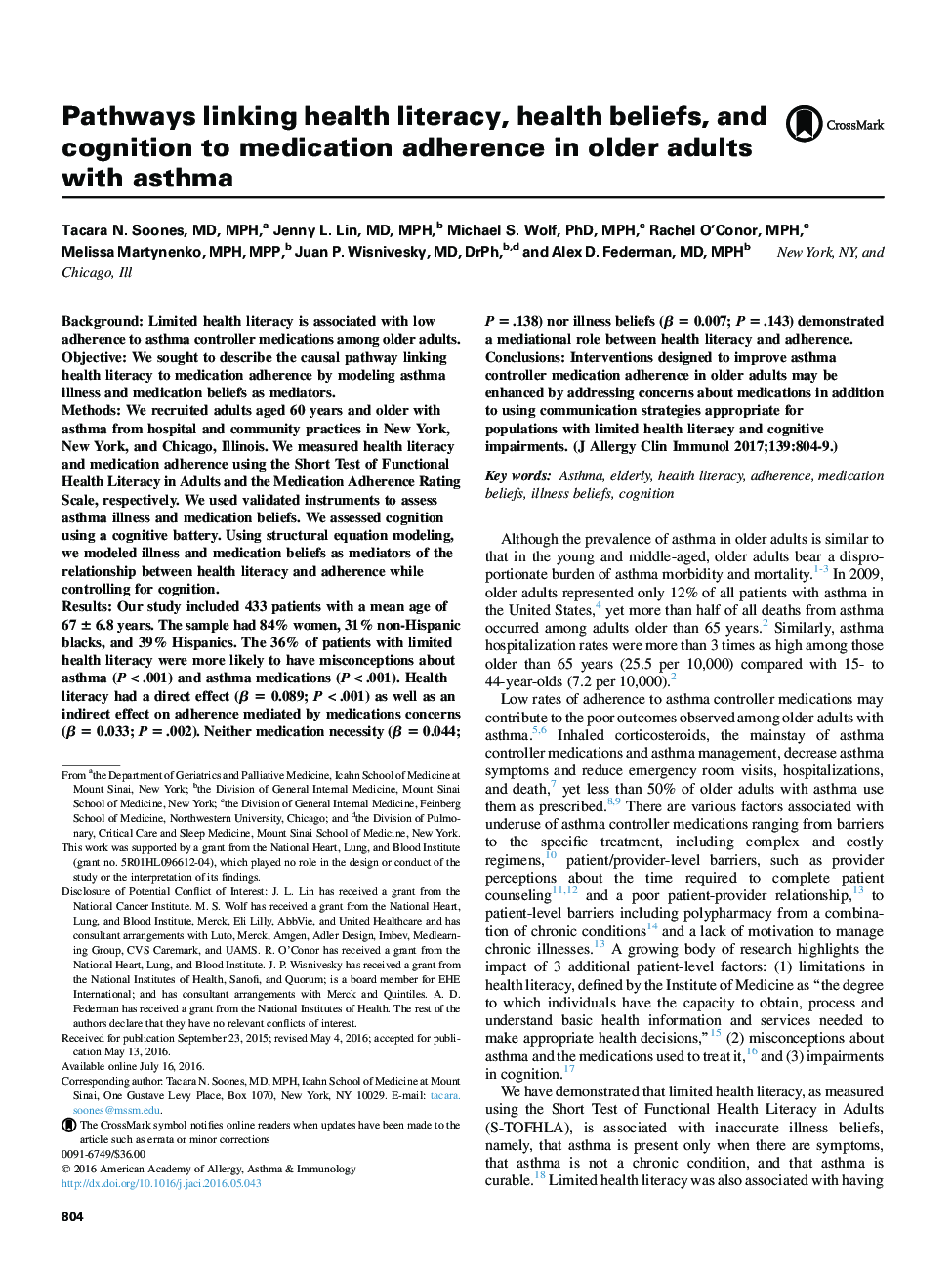| Article ID | Journal | Published Year | Pages | File Type |
|---|---|---|---|---|
| 5646835 | Journal of Allergy and Clinical Immunology | 2017 | 6 Pages |
BackgroundLimited health literacy is associated with low adherence to asthma controller medications among older adults.ObjectiveWe sought to describe the causal pathway linking health literacy to medication adherence by modeling asthma illness and medication beliefs as mediators.MethodsWe recruited adults aged 60 years and older with asthma from hospital and community practices in New York, New York, and Chicago, Illinois. We measured health literacy and medication adherence using the Short Test of Functional Health Literacy in Adults and the Medication Adherence Rating Scale, respectively. We used validated instruments to assess asthma illness and medication beliefs. We assessed cognition using a cognitive battery. Using structural equation modeling, we modeled illness and medication beliefs as mediators of the relationship between health literacy and adherence while controlling for cognition.ResultsOur study included 433 patients with a mean age of 67 ± 6.8 years. The sample had 84% women, 31% non-Hispanic blacks, and 39% Hispanics. The 36% of patients with limited health literacy were more likely to have misconceptions about asthma (P < .001) and asthma medications (P < .001). Health literacy had a direct effect (β = 0.089; P < .001) as well as an indirect effect on adherence mediated by medications concerns (β = 0.033; P = .002). Neither medication necessity (β = 0.044; P = .138) nor illness beliefs (β = 0.007; P = .143) demonstrated a mediational role between health literacy and adherence.ConclusionsInterventions designed to improve asthma controller medication adherence in older adults may be enhanced by addressing concerns about medications in addition to using communication strategies appropriate for populations with limited health literacy and cognitive impairments.
